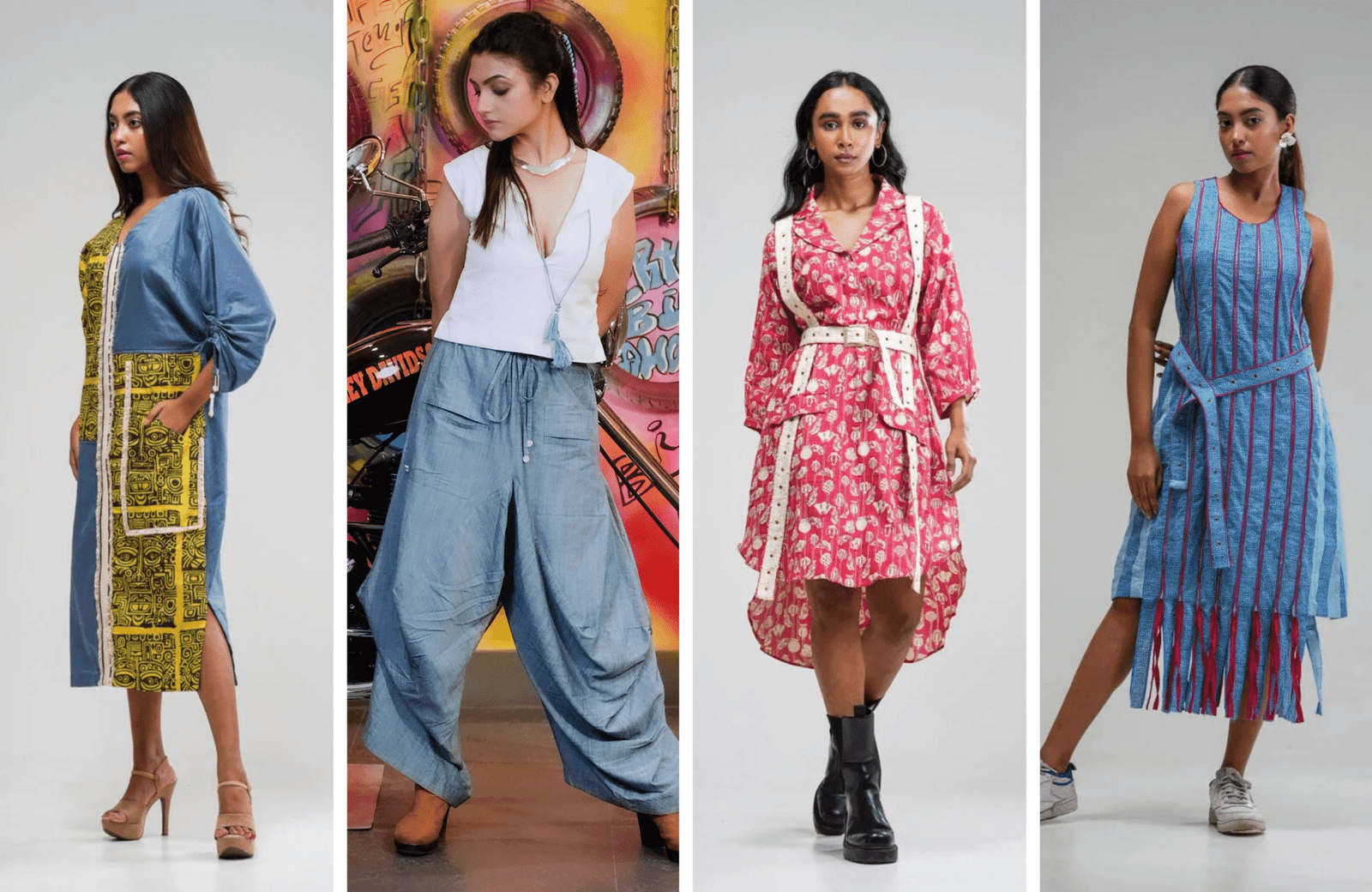
Fashion is diverse, global, and both a form of expression and a necessity. It touches all of us, carrying a considerable responsibility when it comes to sustainability.
The fashion industry carries a massive environmental and social footprint. The industry accounts for 10% of all microplastics in the oceans, 20% of worldwide water pollution, and 10% of carbon emissions. These are mind-boggling numbers, but it doesn’t mean there’s no scope for change.
So, when you buy Indian fusion wear online from us, how are we countering this overwhelming amount of pollution and waste?
Many organic sustainable fashion brands in India make claims about sustainability, but they are unverified. Such claims must be substantiated with comprehensive evidence from reputable organisations.
At StudioRitushar By Suchi, we’re upfront about our GOTS certification. We make sure to follow the criteria set by GOTS, ensuring our entire garment production process is carried out ethically and sustainably.
The circular approach is about making products that are reusable, recyclable, and biodegradable. We’re integrating repair and recycling into our designs, producing them specifically to be durable. When you buy sustainable fusion wear online from us, you’re choosing a zero-waste brand with end-to-end sustainable processes. Our latest fusion lookbook celebrates this ethos of showcasing versatile fusion pieces that effortlessly transition from work to party, blending traditional Indian elements with modern silhouettes for a wardrobe that’s both stylish and sustainable.
Supply chain transparency is non-negotiable. It’s not an afterthought but a strategic foundation for many brands selling eco-friendly dresses, tops, and more. In the fashion sector, progress will be defined by treating suppliers and vendors as genuine partners and by initiating a fundamental shift in brand communication.
Without persistence and patience, sustainable growth isn’t possible. A brand can only succeed in this sector if it makes long-term commitments. This means moving from seasonal to annual forecasts. It also means developing consistent and strong supplier relationships.
As eco-friendly apparel brands back their claims, commit long-term, or embed transparency throughout their process, it doesn’t end there. It’s the buyers who are also involved in the process.
If you buy sustainable fusion wear online, are you buying every season or annually? If your clothes lasted a long time, would you truly pay attention to trends? How anxious are you about following trends? These are some questions you need to ask yourself about your purchasing power. At the end of it all, we understand that sustainability isn’t a restriction. We see it as the chance for positive change and building enduring resilience!
Fashion brands can be sustainable by using eco-friendly materials, reducing waste and incorporating recycling programs, embracing slow fashion, ensuring fair labour practices, transparency, and implementing circular design and upcycling.
Here are three techniques for implementing sustainable design:
● Zero-waste design
● Upcycling and repurposing
● Circular design
StudioRitushar By Suchi makes 100% organic clothes made from natural, fair trade, and GOTS-certified fabrics. We aim to design clothes that are custom, stylish, and exclusive without sacrificing sustainability. We’re encouraging our customers to repurpose and upcycle our eco-friendly, zero-waste clothing.
Here are some ways eco-friendly fashion designers are making a change:
● Opting for eco-friendly materials such as bamboo, hemp, organic cotton, and recycled fabrics that require fewer chemicals, water, and pesticides to produce.
● Using water-saving dyeing and processing technologies to reduce water consumption in textile production.
● Using renewable energy sources to reduce carbon footprints.
●Designing garments with reusability, biodegradability, and recyclability in mind.
●Prioritizing safe working conditions and fair labour practices.
●Implementing 3D printing, minimizing material waste, and reducing excess production.
Sustainable fashion is made through practices like:
● Using recycled fabrics, organic cotton, or other eco-friendly materials.
● Reducing waste by implementing recycling programs.
●Minimizing energy and water consumption.
● Ensuring safe working conditions and fair labour practices.
●Designing for recyclability and longevity.
Or login with